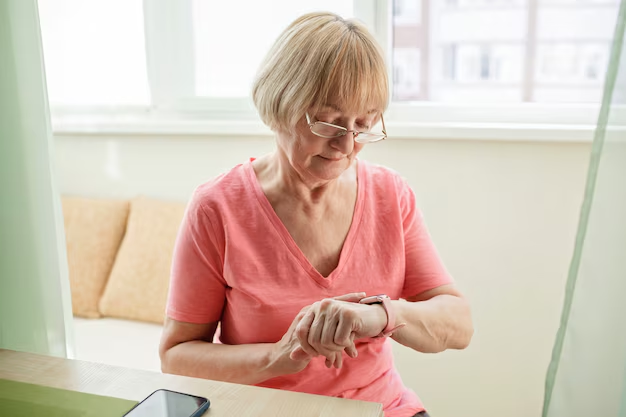Omeprazole and Osteoporosis: What You Need to Know
Have you ever wondered about the long-term effects of the medications you take? Omeprazole, a common treatment for acid reflux and heartburn, often comes up in discussions about bone health. Specifically, there's concern: can omeprazole cause osteoporosis? In this article, we'll dive into the relationship between omeprazole and osteoporosis, explore the mechanisms behind these concerns, and discuss practical insights for those taking the medication.
Understanding Omeprazole
What is Omeprazole?
Omeprazole belongs to a class of drugs known as proton pump inhibitors (PPIs). These medications work by reducing the amount of stomach acid produced by the glands in the stomach lining. They are commonly prescribed for:
- Gastroesophageal reflux disease (GERD)
- Peptic ulcers
- Zollinger-Ellison syndrome
Omeprazole is favored for its effectiveness in alleviating symptoms associated with excessive stomach acid, but it's important to be aware of potential side effects, especially with long-term use.
How Do PPIs Work?
PPIs, including omeprazole, target the enzyme responsible for secreting gastric acid. By inhibiting this enzyme, omeprazole effectively suppresses stomach acid production, providing relief from acid-related issues. However, when stomach acid is reduced over an extended period, it can influence the absorption of essential nutrients, including calcium.
Omeprazole and Bone Health
The Link Between Omeprazole and Osteoporosis
Osteoporosis is a condition characterized by weakened bones and an increased risk of fractures. This begs the question: is there a scientific basis for associating omeprazole with osteoporosis?
Calcium Absorption: Stomach acid plays a crucial role in absorbing calcium, an essential mineral for bone health. Reduced acid production can lead to decreased calcium absorption, potentially weakening bones over time.
Research Findings: Some studies have suggested a potential link between long-term PPI use and an increased risk of fractures, particularly in the hip, wrist, and spine. However, the evidence is not conclusive, and more research is needed to fully understand the connection.
Factors Contributing to Osteoporosis Risk
While omeprazole may contribute to osteoporosis risk, several other factors also play a significant role:
- Age: Bone density naturally decreases as we age.
- Gender: Women are more prone to osteoporosis, especially post-menopause.
- Diet: Insufficient intake of calcium and vitamin D can exacerbate bone loss.
- Lifestyle: Smoking and excessive alcohol consumption are known risk factors.
- Genetics: Family history can also play a role in susceptibility to osteoporosis.
Balancing Benefits and Risks
Should You Be Concerned?
For many, the relief omeprazole provides outweighs potential risks. However, if you're using omeprazole for an extended period, it's wise to monitor bone health and discuss concerns with a healthcare professional.
Tips for Mitigating Risks
Calcium-Rich Diet: Ensure adequate intake of calcium-rich foods such as dairy products, leafy greens, and fortified alternatives.
Vitamin D Supplementation: Consider supplements or safe sun exposure to boost vitamin D levels, which aids calcium absorption.
Weight-Bearing Exercises: Engage in activities like walking, jogging, or resistance training to strengthen bones and improve balance.
Regular Check-Ups: Keep an open dialogue with your doctor about any concerns, and consider bone density tests if suggested.
Exploring Alternatives
Other Treatments for Acid Reflux
If you're worried about long-term omeprazole use, there are alternative treatments worth considering:
Lifestyle Changes: Dietary modifications, weight management, and elevating the head of your bed can significantly alleviate acid reflux symptoms.
Histamine H2 Receptor Antagonists: Medications like ranitidine and famotidine offer acid reduction with a different mechanism and may pose a lower osteoporosis risk.
Antacids: Over-the-counter antacids can provide quick relief from occasional heartburn without the long-term commitment to PPIs.
Consulting Your Healthcare Provider
Before making changes to your medication or treatment plan, it's crucial to consult with your healthcare provider. They can help balance the benefits and risks while tailoring a strategy that suits your individual health needs.
Debunking Common Myths
Instant Osteoporosis? Some might think that taking omeprazole instantly leads to osteoporosis. However, the risk is associated with long-term use, and not everyone who takes PPIs will experience bone issues.
Stopping Omeprazole Suddenly: Stopping PPIs abruptly can lead to a rebound effect, where the stomach produces even more acid. Any change in medication should be gradual and under medical guidance.
All PPIs Are the Same: While all PPIs reduce stomach acid, their potency and side effects can differ. Your healthcare provider can help determine which, if any, alternative is more appropriate.
Final Insights
While omeprazole is effective for managing acid-related issues, it's essential to recognize its potential implications for bone health. If you're taking omeprazole long-term, maintaining a balanced diet, staying active, and communicating with your healthcare provider are crucial strategies.
As with any medication, the key is informed decision-making. Understanding the benefits and risks allows you to engage actively in your healthcare journey, ensuring the best outcomes for your overall well-being.
Quick Takeaways on Omeprazole and Osteoporosis 🦴
- Monitor Calcium Intake: Ensure a calcium-rich diet to support bone health.
- Boost Vitamin D: Consider supplements or safe sun exposure.
- Move More: Engage in regular weight-bearing exercises.
- Regular Check-Ups: Discuss bone health concerns with your healthcare provider.
- Informed Decisions: Balance the relief omeprazole provides with potential long-term impacts on bone health.
- Never Stop Suddenly: Consult your doctor before changing medication regimens.
Stay informed and proactive about your health—knowledge is your greatest tool in managing both your digestive health and bone strength! 🏃♂️💪

Related Articles
- a Nurse Is Caring For a Client Who Has Osteoporosis.
- a Percutaneous Is Performed To Treat Osteoporosis Related Compression Fractures
- Can Alcohol Cause Osteoporosis
- Can I Do Pilates If I Have Osteoporosis
- Can I Reverse Osteoporosis
- Can Men Get Osteoporosis
- Can Osteoporosis Affect Teeth
- Can Osteoporosis Be Cured
- Can Osteoporosis Be Painful
- Can Osteoporosis Be Reversed
